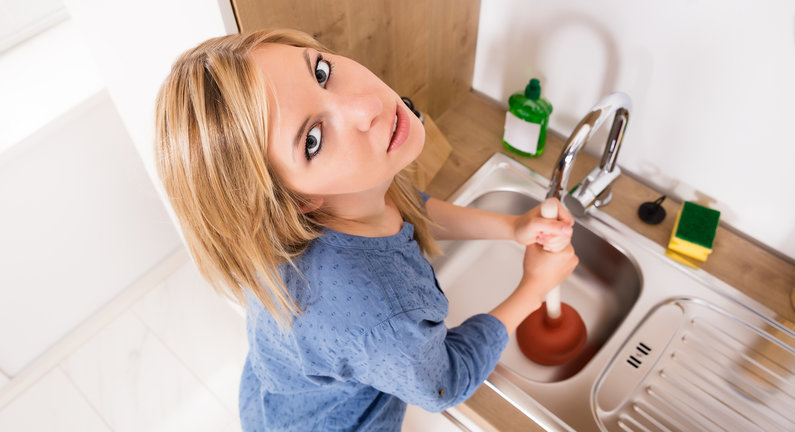

A range of specialist
YourPlumber services
for every home

17 October 2017
The best advice for avoiding a plumbing disaster this winter-
Here are some tips to help keep your home and plumbing healthy and problem free.
Control what goes down your drains!
This is one of the easiest but most essential ways to maintain your plumbing. We are so used to living in a world of convenience that we don’t even think about what we are putting down our drains or not clearing them out regularly.
- In the kitchen, watch out for how much oil and cooking fats you are pouring down the sink. This grease tends to solidify and block your drain. Make sure you pour boiling water down the drain daily to prevent a build-up of solid fat and grease.
- Be careful with ground coffee. While rinsing out that cafetiere, the coffee grounds appear to go down easy, but really they're going to pile up and cause a sludgy, sediment-like mess in your drain.
- In the bathroom remember to check the shower drain hole for a build-up of hair and soap scum. Products like hair conditioner do not rise away easily when trapped in the drain with hair. If left untreated this problem will quickly worsen and get out of hand. Use an old hangar to help pull it all out.
- If you suspect you have a blockage somewhere, try pouring a drain cleaner purchased from a DIY store or even boiling water and fairy liquid down the drain to clear it before the blockage becomes worse.
- Only toilet paper and human waste should go down the toilet. Nappies, wipes, cotton wool and sanitary products should never be flushed away!
Leaks
If you suspect any leaks, don’t shrug it off and leave it till it’s more noticeable. The best way to save yourself a lot of time and hassle further down the line is to investigate where your leak could be and repair it at once.
- Toilet leaks are quite common and can waste a lot of water. Leaks usually occur due to worn out parts which are quick and easy to repair or replace. Make sure you don’t delay by checking and replacing parts as needed so that further damage can be prevented.
- Hose connections on washing machines tend to weaken and become brittle over time which then start leaking. If left alone you could end up with a flooded kitchen or utility room. Check the hose regularly and replace it if it is starting to lose its elasticity or is looking a little worn.
Preparing for Winter
In the UK the weather can change from being relatively mild to quickly plunge into sub-zero temperatures. When temperatures plunge, plumbing and heating systems feel the strain and become prone to bursts and breakdowns
- If you can, turn off water to all outdoor taps. This will prevent freeze of water left in these pipes and ultimately pipes bursting. Also disconnect your garden hose from the tap.
- If you are going away for a winter holiday, be sure to leave on the heating. You can turn it down, just don’t turn it off completely. It also helps to keep some of the kitchen cupboard doors and bathroom cabinets open so that some warmth can reach the pipes stored here.
- Insulate any exposed pipes in colder parts of the house such as in the garage or basement. This will keep pipes from freezing and will save money on the cost of bills. You can do this with pre- slit polyethylene insulation which you can purchase from DIY stores.
Know where your Stopcock is!
Knowing where to shut off your mains water supply is essential when you have the beginnings of a problem and want to avoid any further damage. If you don’t know where yours is, now is the time to check. It could be under the kitchen sick, in the garage or in a cupboard under the stairs.
- Once you’ve located the stopcock, be sure to check that it’s not seized on or stiff so that you can quickly turn it off in an emergency.